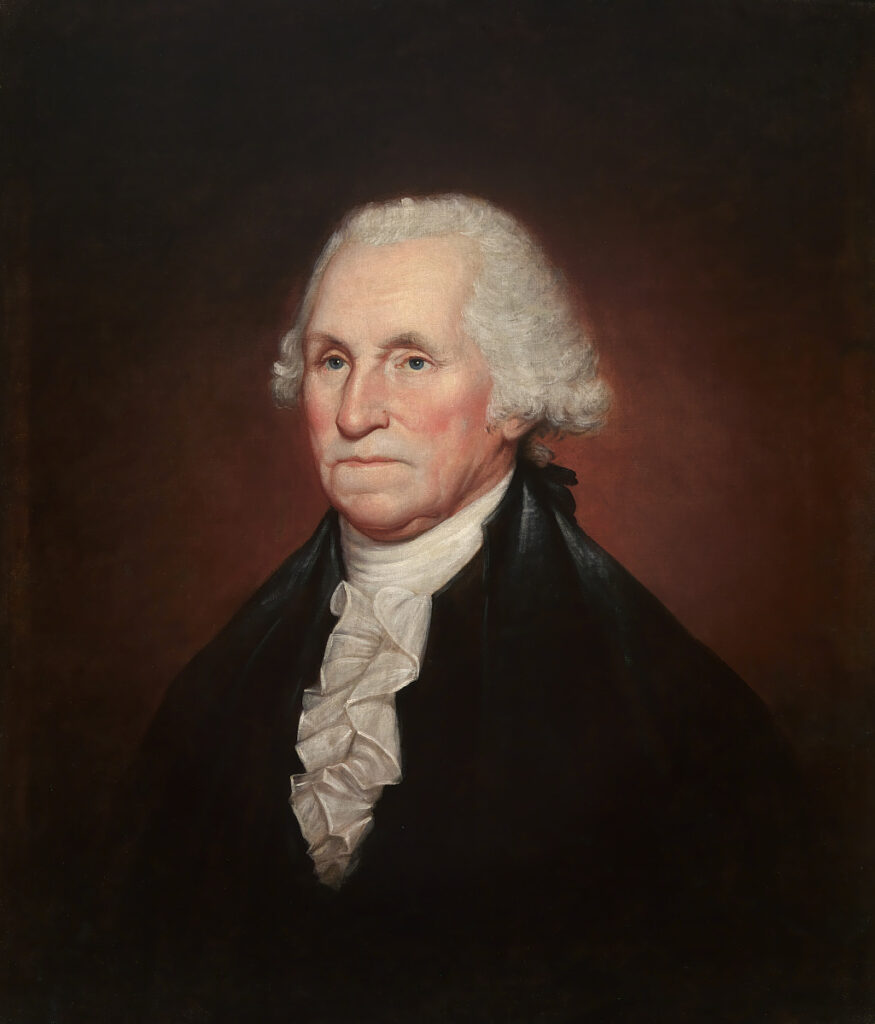“From George Washington to Alexander Hamilton, 3 October 1788,” Founders Online, National Archives, https://teachingamericanhistory.org/0kzv.
Dear Sir:
In acknowledging the receipt of your candid and kind letter by the last Post; little more is incumbent upon me, than to thank you sincerely for the frankness with which you communicated your sentiments, and to assure you that the same manly tone of intercourse will always be more than barely welcome, indeed it will be highly acceptable to me. I am particularly glad in the present instance, that you have dealt thus freely and like a friend.
Although I could not help observing, from several publications and letters that my name had been sometimes spoken of, and that it was possible the Contingency which is the subject of your letter might happen; yet I thought it best to maintain a guarded silence and to seek the counsel of my best friends (which I certainly hold in the highest estimation) rather than to hazard an imputation unfriendly to the delicacy of my feelings. For, situated as I am, I could hardly bring the question into the slightest discussion, or ask an opinion even in the most confidential manner, without betraying, in my judgment, some impropriety of conduct, or without feeling an apprehension, that a premature display of anxiety might be construed into a vain-glorious desire of pushing myself into notice as a candidate. Now, if I am not grossly deceived in myself, I should unfeignedly rejoice, in case the Electors, by giving their votes in favor of some other person, would save me from the dreaded Dilemma of being forced to accept or refuse.
If that may not be, I am, in the next place, earnestly desirous of searching out the truth, and of knowing whether there does not exist a probability that the government would be just as happily and effectually carried into execution without my aid, as with it. I am truly solicitous to obtain all the previous information which the circumstances will afford, and to determine (when the determination can with propriety be no longer postponed) according to the principles of right reason, and the dictates of a clear conscience; without too great a reference to the unforeseen consequences, which may affect my person or reputation. Untill that period, I may fairly hold myself open to conviction; though I allow your sentiments to have weight in them; and I shall not pass by your arguments without giving them as dispassionate a consideration, as I can possibly bestow upon them.
In taking a survey of the subject, in whatever point of light I have been able to place it, I will not suppress the acknowledgment, my Dr. Sir that I have always felt a kind of gloom upon my mind, as often as I have been taught to expect, I might, and perhaps must ere long, be called to make a decision. You will, I am well assured, believe the assertion (though I have little expectation it would gain credit from those who are less acquainted with me) that if I should receive the appointment and if I should be prevailed upon to accept it, the acceptance would be attended with more diffidence and reluctance than I ever experienced before in my life. It would be, however, with a fixed and sole determination of lending whatever assistance might be in my power to promote the public weal, in hopes that at a convenient and early period my services might be dispensed with, and that I might be permitted once more to retire, to pass an unclouded evening after the stormy day of life, in the bosom of domestic tranquility.
But why these anticipations? if the friends to the Constitution conceive that my administering the government will be a means of its acceleration and strength, is it not probable that the adversaries of it may entertain the same ideas, and of course make it an object of opposition? That many of this description will become Electors, I can have no doubt of, any more than that their opposition will extend to any character who (from whatever cause) would be likely to thwart their measures. It might be impolitic in them to make this declaration previous to the Election; but I shall be out in my conjectures if they do not act conformably thereto, and that the seeming moderation by which they appear to be actuated at present is neither more or less than a finesse to lull and deceive. Their plan of opposition is systematized, and a regular intercourse, I have much reason to believe between the Leaders of it in the several States is formed to render it more effectual. With sentiments of sincere regard &c.




































































































































































































































![Finley, A. (1829) Pennsylvania. Philada. [Map] Retrieved from the Library of Congress, https://www.loc.gov/item/98688548/.](/content/uploads/2024/02/Map-of-PA--273x190.jpg)



































































































































































































